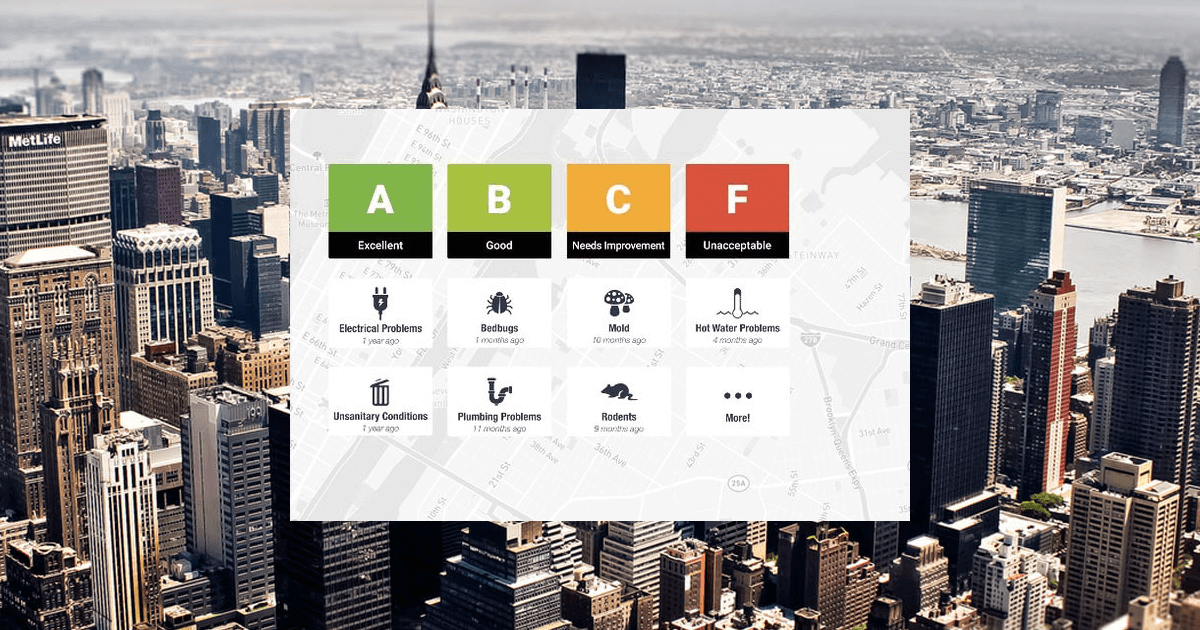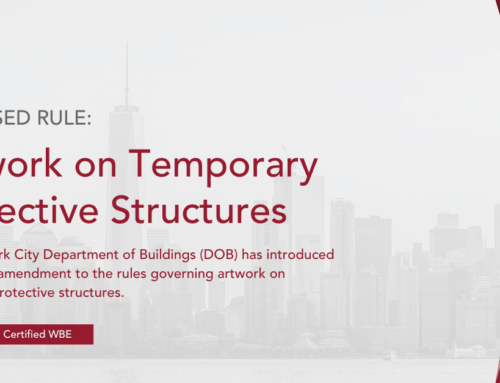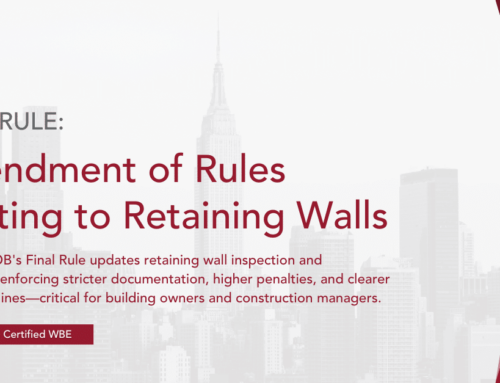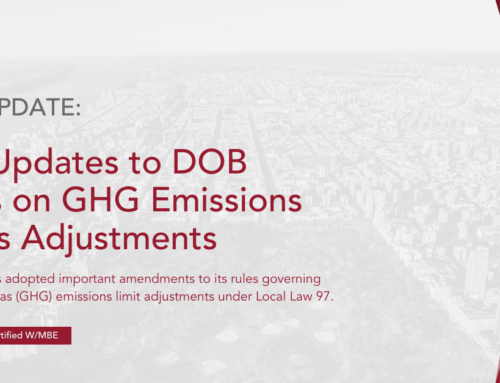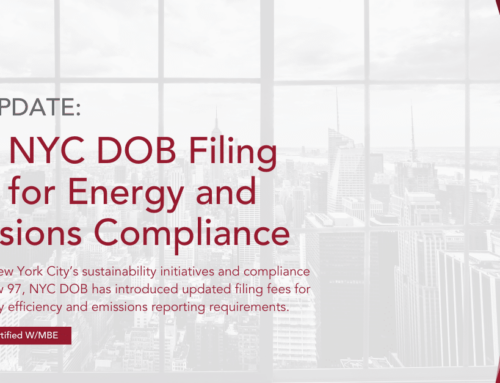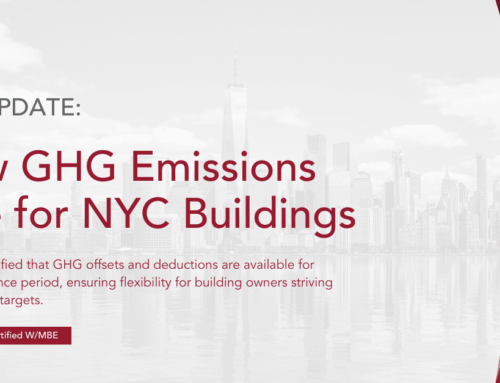A new online service will comb government records for New York City 1.1 million rental properties, assigning ratings and reporting everything from safety violations to legal disputes.
From dnainfo:
MIDTOWN — When searching for rentals online, clicking through pretty pictures and reading the glowing blurbs, wouldn’t it be helpful to also see an objective lowdown on whether a unit’s building has red flags before you sign a lease?
The data hounds at Rentlogic created just that.
Rentlogic has launched an independent building rating system for the city’s 1.1 million residential buildings using eight years worth of open source data from various government agencies, including violations for problems such as mold, rodents and no hot water as well as legal actions.
The startup’s free software, which launched Tuesday, allows apartment hunters who download the browser extension to see a box pop up with the A-through-F letter grade when they’re searching for listings on more than 200 sites.
“We don’t care what service you use to find your apartment,” said Rentlogic’s Yale Fox, a TED Fellow focused on income inequality and housing rights. “We just want people to look up the rating, and we’re trying to make it as accessible as possible.”
Whether using platforms like StreetEasy or going directly to buildings’ or brokerage sites such as Douglas Elliman or the site with listings that accept Section 8 vouchers, house hunters will not only be able to see a building’s grade, they’ll also be able to see where there are similar, but better-rated apartments for rent nearby. (The software isn’t able to work, however, on Craigslist, since those listings don’t give specific addresses, noted Fox, whose bad experience with finding an apartment on that site propelled him into his current endeavor.)
The goal is to make the real estate market more transparent and push landlords into better maintaining their buildings, much like the Health Department’s restaurant grading system has improved eateries’ cleanliness, with more 93 percent of restaurants now earning “A’s” and salmonella rates down significantly since the rating system began, according to city officials.
An analysis of buildings’ letter grades reveals there’s no direct relationship between a building’s letter grade whether a unit is $1,800 a month or $20,000 a month, Fox found.
And he wants to change that.
“There’s almost a textbook zero correlation between what you’re paying for and the services that are provided,” he said, noting that pattern is not unusual given the lack of transparency in the market.
“When this works, at the end of the day, you should see a correlation, where “A’s” can charge more and “F’s” are forced to push their price down, which makes it more fair. If you want to save a few hundred bucks, go live in a C-rated building.”
You can even find “F’s” in some of the fanciest parts of the city.
For instance, a two-bedroom asking $4,850 a month on Berkeley Place in Park Slope with 12-foot original tin ceilings, original crown moldings, brand new oak wood floors, beautiful French pocket doors accented with magnificent decorative fireplace” that also has its own laundry room, custom kitchen cabinets and a bathroom with Italian Calacatta is rated “F” for safety violations and lead violations from four years ago.
A two-bedroom on West 74th Street on the Upper West Side near Central Park, listed for $4,650 a month with herringbone-patterned floors and “top-of-the-line” stainless steel appliances in a doorman building was rated “F” for safety, fire code, gas, water and plumbing violations from two years ago.
A two-bedroom with “an abundance of natural light” and a dishwasher currently on the market on Atlantic Avenue in Brooklyn Heights for $2,850 a month is rated “F” for a fire code and safety violation from more than a year ago.
Rentlogic initially launched last summer in beta mode as a rental platform itself, but instead of persuading house hunters to search for units on its own site, the startup realized it had to meet renters where they were at — which was on other sites.
Also, some landlords were not keen on giving listings to Rentlogic because they were concerned about their buildings’ ratings and disputed the accuracy of the grades.
Fox expects that some landlords will remain angry with his site’s work and may even threaten legal action, but he noted that the site is predicated on “truth, diligence and disclosure” of public data.
In some ways, Rentlogic’s algorithm gives landlords the benefit of the doubt, Fox said.
For instance, complaints do not change a building’s grade, though they are posted in raw data. Only confirmed violations affect a score.
The company controls for a building’s size, so a 500-unit building with five violations isn’t the same as an eight-unit building with five violations, Fox explained.
The algorithm also gives new landlords of problem-ridden buildings a break.
When a building is purchased, the site notes the change in ownership, and if violations stop or decline then the rating improves faster.
This is a way to not penalize new landlords for a previous owner’s actions, Fox explained.
However, if violations continue to occur after a building is acquired, the rating stays put.
Landlords with “A”-rated buildings, he believes, will work hard to maintain that grade, while others will work harder to change their grades.
“When you’re monitored — and essentially that’s what this is for every building — your behavior changes,” Fox said.
Read more from dnainfo…
If you have any further questions regarding this new service or your public records and how they’re being used, contact Diane Cahill at 631-770-3840 or email dcahill@cahillstrategies.com

